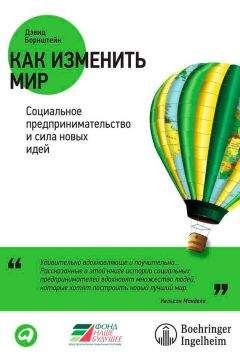Дэвид Пристланд - Красный флаг: история коммунизма
M. Couto, “The Secret Love of Deolinda”, in Couto, Everyman is a Race, trans. D. Brookshaw (Portsmouth, NH, 1994), p. 112.
1123
Сравнение советского и африканского марксизма см. в М. Ottaway, “Soviet Marxism and African Socialism”, Journal of Modern African Studies, 16, 3 (1978), pp. 477—85.
1124
Машел, 18 ноября 1976 года, цит. по Hall and Young, Confronting Leviathan, pp. 76, 67.
1125
Hall and Young, Confronting Leviathan, p. 102.
1126
J. Coelho, “State Resettlement Policies in post-Colonial Rural Mozambique: The Impact of the Communal Village Programme on Tete Province, 1977—1982”, Journal of Southern African Studies, 24 (1988), pp. 61—91.
1127
D. Birmingham, “Angola”, in P. Chabal (ed.), A History of Lusophone Africa (London, 2002), pp. 152—3.
1128
H. Tuma, The Case of the Socialist Witchdoctor and Other Stories (Oxford, 1993), p. 8.
1129
Balsvik, Students, p. 133.
1130
B. Zewde, A History of Modern Ethiopia, 1855—1991 (Oxford, 2001), p. 222.
1131
Там же, сс. 149—150.
1132
Balsvik, Students, p. 294.
1133
Цит. по Dawit Wolde Giorgis, Red Tears. War, Famine and Revolution in Ethiopia (Trenton, NJ, 1989), p. 11.
1134
R. Lefort, Ethiopia: An Heretical Revolution? trans. A. Berret (London, 1983), p. 276.
1135
Zewde, Modern Ethiopia, p. 249.
1136
Lefort, Ethiopia, p. 278.
1137
О таком образе Менгисту см. в D. Donham, Marxist Modern, An Ethnographic History of the Ethiopian Revolution (Berkeley, 1999), pp. 129—30; Dawit, Red Tears, pp. 30—1.
1138
A. Tiruneh, The Ethiopian Revolution, 1974—1987 (Cambridge, 1993), P. 79.
1139
Donham, Marxist Modern, p. 29.
1140
Отчет Агентства США по международному развитию в Эфиопии, 1976.
1141
Lefort, Ethiopia, p. 278.
1142
См. М. Ezra, Ecological Degradation, Rural Poverty, and Migration in Ethiopia. A Contextual Analysis (New York, 2001).
1143
F. Bizot, The Gate, trans. E. Cameron (London, 2004).
1144
Там же, с. 119.
1145
Там же, с. 116.
1146
Там же, с. 117.
1147
Там же, с. 115.
1148
D. P. Chandler, Brother Number One: A Political Biography of Pol Pot, rev. edn (Boulder, 1999), pp. 8—9, 37.
1149
F. Debre, Cambodge: La Revolution de la foret (Paris, 1976), p. 82.
1150
Интервью с Сот Полином, цит. по Chandler, Brother Number One, p. 52.
1151
Pol Pot, “Abbreviated History Lesson on the History of the Kampuchean Revolutionary Movement Led by the Communist Party of Kampuchea” (early 1977), in D. Chandler, B. Kiernan and С Boua (eds.), Pol Pot Plans the Future (New Haven, 1988), pp. 218—19.
1152
См., например, F. Ponchaud, “Social Change in the Vortex of Revolution”, in K. Jackson (ed.), Cambodia 1975—1978: Rendezvous with Death (Princeton, 1989), pp. 170 ff.
1153
Bizot, The Gate, p. 110.
1154
B. Kiernan, “Enver Pasha and Pol Pot: A Comparison between the Armenian and Cambodian Genocides”, in Proceedings of the International Conference on the “Problems of Genocide” (Cambridge, Mass., 1997), pp. 56—7.
1155
P. Short, Pol Pot: The History of a Nightmare (London, 2004), p. 337.
1156
J.-L. Margolin, “Cambodia. The Country of Disconcerting Crimes”, in S. Courtois et al., The Black Book of Communism: Crimes, Terror, Repression (Cambridge, Mass., 1999), p. 626.
1157
Разные мнения на этот счет см. в К. Jackson, “Introduction”, in Jackson (ed.), Cambodia pp. 9, 11; M. Vickery, “Democratic Kampuchea: Themes and Variations”, in D. Chandler and B. Kiernan (eds.), Revolution and Its Aftermath in Kampuchea: Eight Essays (New Haven, 1983), p. 131.
1158
Цит. по В. Kiernan, The Pol Pot Regime: Race, Power and Genocide in Cambodia under the Khmer Rouge, 1975—79 (New Haven, 1996), p. 62.
1159
См. Short, Pol Pot, p. 287.
1160
A. Hinton, “Why Did You Kill? The Cambodian Genocide and the Dark Side of Face and Honor”, The Journal of Asian Studies 57 (1998), p. 110.
1161
Chandler et al., Pol Pot Plans the Future, p. 158.
1162
S. Heder, Kampuchean Occupation and Resistance (Bangkok, 1980), p. 6.
1163
Цит. по Chandler, Brother Number One, p. 115.
1164
D. Pran, Children of Cambodia’s Killing Fields. Memoirs of Survivors (New Haven, 1997), p. 131.
1165
Margolin, “Cambodia”, p. 626.
1166
Chandler et al., Pol Pot Plans the Future, p. 183.
1167
О других, более высоких цифрах см. М. Sliwinsky, Le Genocide Khmer Rouge: Une analyse demographique (Paris, 1995) О количестве погибших см. Margolin, “Cambodia”, pp. 588—91.
1168
Hinton, “Why Did You Kill?”, pp. 113,118.
1169
A. Hyman, Afghanistan under Soviet Domination, 1964—91 (London, 1992), pp. 92—8.
1170
Об отношении СССР см., Н. Bradsher, Afghan Communism and Soviet Intervention (Oxford, 2000), ch. 3; Westad, Global Cold War, pp. 299—326.
1171
Silvio Pons, “Meetings between the Italian Communist Party and the Communist Party of the Soviet Union, Moscow and Rome 1978—80”, Cold War History, 3 (2002), pp. 157—66.
1172
The Economist, 20 декабря 1978 r.
1173
D. Remnick, Lenin’s Tomb, The Last Days of the Soviet Empire (London, 1994), p. 156.
1174
Цит. по: М. Leffer, For the Soul of All Mankind, The United States, the Soviet Union and the Cold War (New York, 2007), p. 385.
1175
Там же, с. 394.
1176
D. Reynolds, Summits. Six Meetings That Shaped the Twentieth Century (London, 2007), p. 360.
1177
M. Gorbachev, Memoirs (London, 1997), p. 489.
1178
Liu Binyan, People or Monsters? And Other Stories and Reportage from China after Mao, ed. P. Link (Bloomington, 1983), pp. 11—68.
1179
R. Baum, Burying Mao: Chinese Politics in the Age of Deng Xiaoping (Princeton, 1994), p. 8.
1180
S. Shirk, The Political Logic of Economic Reform in China (Berkeley, 1993), ch. 10.
1181
W. Jenner and D. Davin (eds.), Chinese Lives (London, 1986), pp. 8—9,13.
1182
L. Zhang and С Macleod (eds.), China Remembers (Oxford, 1999), p. 5.
1183
People’s Daily, 3 августа 2006 r.
1184
A. Yurchak, Everything was Forever, until It was No More. The Last Soviet Generation (Princeton, 2006), p. 113.
1185
Там же, сс. 96—97.
1186
Там же.
1187
R. Tokes, Murmur and Whispers: Public Opinion and Legitimacy Crisis in Hungary, 1972—1989 (Pittsburgh, 1997), pp. 37—9.
1188
Там же, с. 56.
1189
D. Bahry, “Society Transformed? Rethinking the Social Roots of Perestroika”, Slavic Review, 52 (1993), pp. 516—17.
1190
D. Mason, Public Opinion and Political Change in Poland (Cambridge, 1985), pp. 63—4.
1191
H. Merskey and B. Shafran, «Political Hazards in the Diagnosis of “Sluggish Schizophrenia”», British Journal of Psychiatry, 148 (1986), p. 253.
1192
М. Fulbrook, The People’s State: East German Society from Hitler to Honecker (New Haven, 2005), pp. 241—2.
1193
См. интервью в В. Miller, Narratives of Guilt and Compliance in Unifed Germany: Stasi Informers and Their Impact on Society (London, 1999), pp. 67—8.
1194
Цит. по: Miller, Narratives of Guilt, p. 43—4.
1195
Цит. там же, с. ioi.
1196
См. Yurchak, Everything was Forever, pp. 107—8.
1197
Bahry, «Society Transformed?», p. 539.
1198
Tokes, Murmur and Whispers, p. 56.
1199
См., например J. Kopstein, The Politics of Economic Decline in East Germany, 1945—1989 (Chapel Hill, 1997), pp. 122—9.
1200
А. Ципкоцит. по: М. Ouimet, The Rise and Fall of the Brezhnev Doctrine in Soviet Foreign Policy (Chapel Hill, 2003), pp. 252—3.
1201
M. Ellman and V. Kontorovich (eds.), “The Destruction of the Soviet Economic System: an Insiders” History (Armonk, NY, 1998), p. 173.
1202
О разочаровании этой группы см. О. Westad, “How the Cold War Crumbled”, in S. Pons and F. Romero (eds.), Reinterpreting the End of the Cold War. Issues, Interpretations, Periodizations (London, 2005), p. 76. См. также A. Brown, Seven Years That Changed the World: Perestroika in Perspective (Oxford, 2007), pp. 172—3.
1203
А. Яковлев. Сумерки. М., 2003. С. 354.
1204
Mason, Public Opinion, p. 45.


